Find The Best Excavation Contractors With ExcavationHQ.com
Find & Hire Trusted Excavation Specialists
ExcavationHQ.com connects you with vetted excavation contractors for any project. Get free quotes, compare services, and find the perfect match for your excavation needs in the USA. Whether you need land clearing, grading, trenching, or site preparation, we've got you covered.
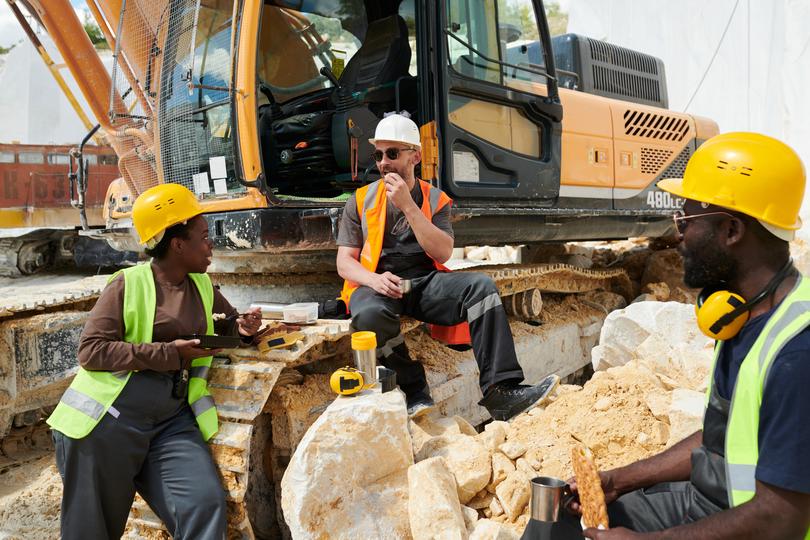
Excavation Contractors Near Me
Looking for excavation contractors in a specific location? Browse our directory to find excavators near you across the USA.
Finding The Right Excavation Contractor Is Easy With ExcavationHQ.com
We make it simple to connect with vetted excavation professionals across the USA.
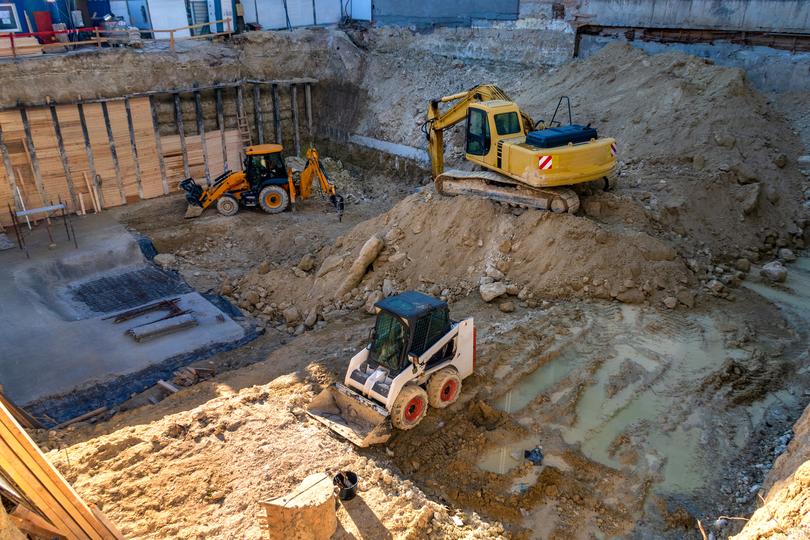
- Tell Us About Your Project
- Describe your excavation needs, whether it's for land clearing, grading, trenching, or site preparation. Tell us about your property and your budget.
- We Connect You With Local Contractors
- We'll match you with reputable excavation contractors in your area who specialize in your project type and have experience working on similar properties.
- Compare Quotes & Choose The Best Fit
- Review quotes, compare services, and choose the excavation contractor who best meets your requirements and budget. We provide you with all the information you need to make an informed decision.
- Get Your Project Started!
- With the right excavation contractor on board, you can start your excavation project with confidence knowing that you're in good hands.
Why Choose ExcavationHQ.com for Your Excavation Project?
Why Choose ExcavationHQ for Your Excavation Needs?
We take the hassle out of finding reliable excavation contractors in the USA. Here's why ExcavationHQ.com is the best choice for your next project: We make it easy to find and compare qualified excavation contractors in your area. Here's how:

- Vetted & Trusted Contractors
- We carefully vet all excavation contractors in our directory to ensure they are licensed, insured, and have a proven track record of quality workmanship and customer satisfaction. You can be confident that you're choosing from the best in the industry.
- Get Competitive Quotes
- Compare prices from multiple excavation contractors and find the best deal for your project. We make it easy to see all your options side-by-side so you can make an informed decision.
- Save Time & Effort
- Let us do the work for you! Find the right excavation contractor quickly and easily without endless searching. Simply submit your project details and we'll do the rest.
- Wide Range of Services
- We offer a comprehensive directory of excavation contractors who specialize in a variety of services, including land clearing, grading, trenching, foundation excavation, and more. Whether your project is big or small, we can connect you with the right experts.
- Customer Support
- Our dedicated team is here to help you with any questions or issues. We're committed to your satisfaction and want to ensure you have a positive experience with ExcavationHQ.com.
- Free To Use
- ExcavationHQ.com is completely free to use for homeowners and businesses. There are no hidden fees or obligations. Get started today and find the perfect excavation contractor for your needs.
Need Excavation Services for Your Business?
Commercial Excavation Services
Find trusted commercial excavation contractors on ExcavationHQ.com. We have specialists for underground utilities, land clearing, demolition and more. Our contractors are experienced in working on a variety of commercial projects, including industrial sites, retail developments, office complexes.

Find reliable excavation contractors near you. Get quotes for site preparation, grading, trenching, and more.
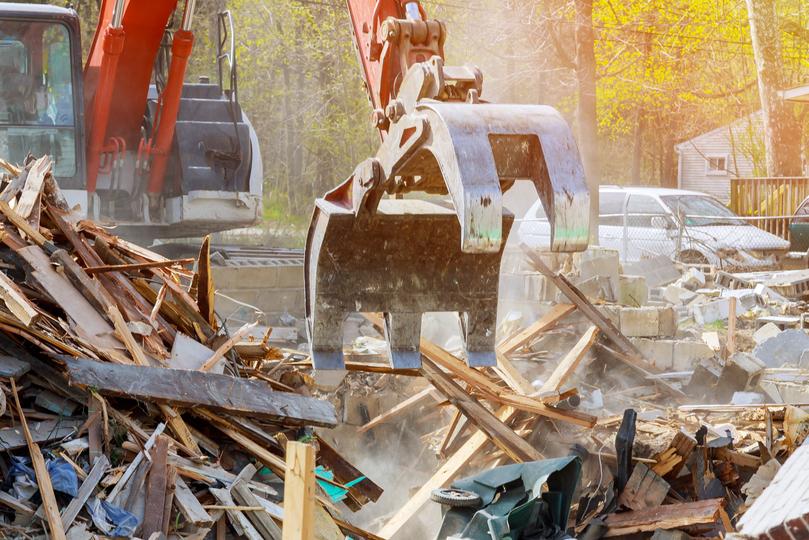
Need a structure removed safely and efficiently? Find experienced demolition contractors for projects big and small.
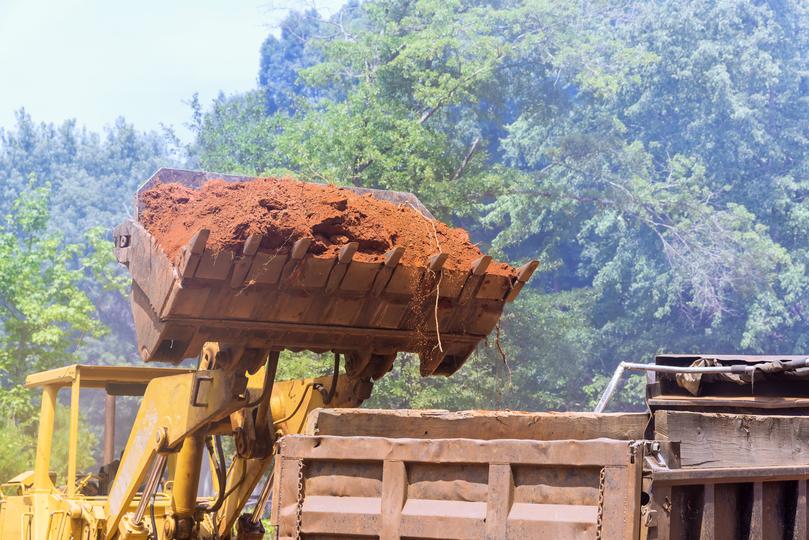
From hauling to delivery, find dirt contractors that can handle your soil and aggregate needs for any project.

Protect your health and property with certified asbestos removal contractors. Find experts in asbestos abatement and disposal.
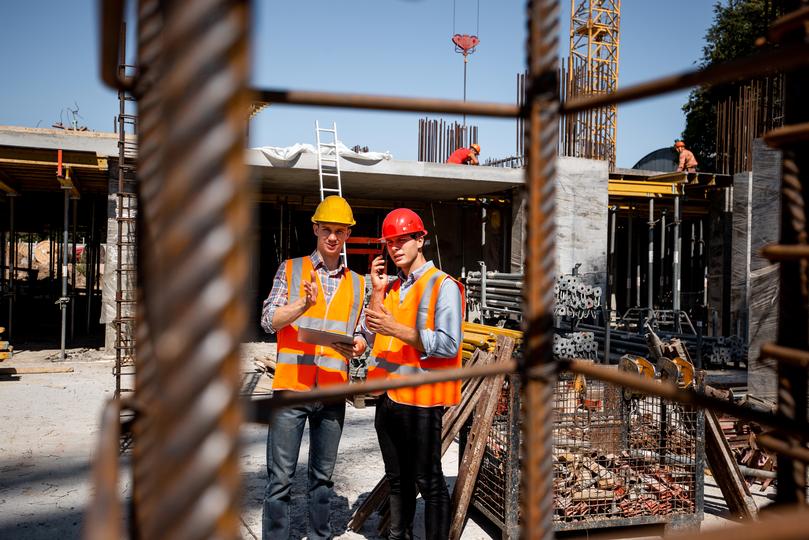
Find reliable and experienced construction companies in your area for new home builds, renovations, and commercial projects.
Excavation Services for Your Home?
Residential Excavation Services
ExcavationHQ.com connects you with reliable residential excavation contractors. Find experts for driveway grading, landscaping excavation, drainage solutions. We can help you find the right contractor for your backyard, landscaping project, home addition.

Find reliable excavation contractors near you. Get quotes for site preparation, grading, trenching, and more.

Need a structure removed safely and efficiently? Find experienced demolition contractors for projects big and small.

From hauling to delivery, find dirt contractors that can handle your soil and aggregate needs for any project.

Protect your health and property with certified asbestos removal contractors. Find experts in asbestos abatement and disposal.

Find reliable and experienced construction companies in your area for new home builds, renovations, and commercial projects.
Ready to Get Started on Your Excavation Project?
Find The Best Excavation Contractors on ExcavationHQ.com!
Get free quotes, compare services, and connect with trusted professionals.
Excavation Glossary
Excavation
Grading
Trenching
Site Preparation
Backfilling
Compaction
Cut and Fill
Topsoil
Subsoil
Foundation Excavation
Pool Excavation
Demolition
Land Clearing
Excavator
Backhoe
Frequently Asked Questions About Excavation Contractors
How do I find a good excavation contractor?
- Experience: Choose contractors with a proven track record and years of experience in excavation projects similar to yours.
- Licensing and Insurance: Verify that they are properly licensed to operate in your area and carry adequate insurance to protect you from liability in case of accidents or damage.
- Equipment and Resources: Ensure they have the necessary equipment and resources to handle your project efficiently and safely.
- Positive Reviews and References: Check online reviews and testimonials from previous customers. Request references and contact them to inquire about their experience with the contractor.
- Professionalism: Opt for a company that communicates clearly, provides detailed and transparent estimates, and has a responsive and courteous team.
How much does excavation cost?
- Project Size and Scope: The larger and more complex the excavation, the higher the cost.
- Soil Type: Different soil types require different equipment and techniques, impacting costs. Rocky or clay-rich soil can be more expensive to excavate than loose soil.
- Accessibility: Difficult-to-access sites might require specialized equipment or additional labor, increasing expenses.
- Disposal Costs: Hauling away excavated material (soil, rocks, etc.) to disposal sites incurs additional fees.
- Permits and Inspections: Depending on local regulations, permits and inspections might be required, adding to the overall cost.
What are the different types of excavation?
- Topsoil Removal: Stripping the fertile topsoil layer from a site, often preserving it for landscaping.
- Trench Excavation: Digging long, narrow trenches for utilities (pipes, cables) or foundations.
- Basement Excavation: Removing earth to create a space for a basement beneath a structure.
- Pool Excavation: Digging a precise hole for installing a swimming pool.
- Roadway Excavation: Removing earth and preparing the ground for road construction.
- Demolition Excavation: Clearing debris and preparing the site after demolition.
- Channel Excavation: Creating channels for drainage or irrigation.
What equipment is used for excavation?
- Excavators: Versatile machines with a bucket, arm, and rotating cab for digging, lifting, and moving earth.
- Backhoes: Similar to excavators but with a digging bucket on the back and a loader bucket on the front, ideal for trenching and smaller excavations.
- Bulldozers: Powerful machines with a large blade for pushing earth, clearing land, and leveling surfaces.
- Skid Steers: Compact and maneuverable loaders with various attachments (buckets, forks) for digging, loading, and grading in tight spaces.
- Trenchers: Specialized machines for digging narrow trenches for utilities.
- Dump Trucks: Vehicles for hauling excavated material to disposal sites.
Do I need a permit for excavation?
- Excavations Deeper Than a Certain Depth: This varies by jurisdiction, usually around 5 feet.
- Excavations Near Utilities: Digging near buried utilities (gas, water, electric) often requires permits and utility locates to prevent damage.
- Excavations Affecting Public Property: Projects impacting sidewalks, roads, or other public areas typically require permits.
- Excavations in Environmentally Sensitive Areas: Projects in wetlands, floodplains, or other sensitive areas might need special permits.
What is the excavation process?
- Planning and Surveying: Defining the excavation area, marking utility lines, and determining the required depth and grade.
- Site Preparation: Clearing vegetation, removing obstacles, and ensuring site accessibility.
- Excavation: Using appropriate equipment (excavators, backhoes, etc.) to remove earth and create the desired excavation.
- Hauling and Disposal: Transporting excavated material to designated disposal sites, complying with environmental regulations.
- Backfilling and Compaction: Refilling the excavation with suitable material and compacting it to achieve the required density and stability.
- Grading and Finishing: Leveling and shaping the surface to the final grade for landscaping or construction.
How do I choose the right excavation contractor for my project?
- Project Type and Size: Ensure the contractor has experience handling projects similar to yours in scale and complexity.
- Reputation and Reviews: Check online reviews and testimonials, and request references from previous clients.
- Licensing and Insurance: Verify that the contractor is properly licensed and insured to protect you from liability.
- Equipment and Resources: Confirm that they have the necessary equipment and resources for your project's needs.
- Communication and Transparency: Choose a contractor who communicates clearly, provides detailed estimates, and keeps you informed throughout the project.
- Safety Record: Inquire about their safety protocols and track record to ensure a safe work environment.
- Price: While price is important, it shouldn't be the only deciding factor. Balance affordability with experience, reputation, and quality of service.
What should I do before excavation starts?
- Clearly Define the Scope: Outline the project's goals, including the excavation area, depth, grade, and intended use.
- Obtain Necessary Permits: Research and acquire any required permits from your local authorities.
- Mark Utility Lines: Contact your utility companies to locate and mark underground utilities to prevent damage.
- Communicate with Neighbors: Inform your neighbors about the project's timeline and potential noise or disruptions.
- Prepare the Site: Clear any obstacles, such as vegetation, furniture, or structures, from the excavation area.
- Discuss Safety Protocols: Review safety procedures with the contractor to ensure a safe work environment.
What are the risks associated with excavation?
- Trench Collapses: Unstable trench walls can cave in, posing a severe risk to workers. Proper shoring and sloping are crucial safety measures.
- Utility Damage: Striking underground utilities (gas, water, electric) can cause leaks, explosions, or electrocution. Accurate utility locates and careful digging are essential.
- Falling Objects: Materials or equipment falling into excavations can injure workers. Securing work areas and using appropriate safety gear is vital.
- Equipment Accidents: Operating heavy machinery involves risks of rollovers, collisions, or mechanical failures. Trained operators and proper equipment maintenance are critical.
- Environmental Hazards: Excavated soil might contain hazardous materials (asbestos, lead). Proper testing and disposal procedures are necessary.
How do I know if I need excavation for my project?
- New Construction: Laying foundations, basements, or underground utilities for new buildings.
- Home Additions: Creating space for new rooms, basements, or extensions.
- Landscaping: Leveling ground, creating slopes, installing retaining walls, or digging for ponds or pools.
- Drainage Improvement: Installing French drains, drainage ditches, or swales to manage water runoff.
- Utility Installation or Repair: Laying new water, sewer, gas, or electrical lines, or repairing existing ones.
- Demolition: Clearing debris and preparing the site after demolishing a structure.
What is the best time of year for excavation?
- Spring and Fall: Often considered favorable due to moderate temperatures and drier soil conditions.
- Summer: Can be suitable, but hot weather can make working conditions challenging and might require additional measures (shade, hydration) for workers.
- Winter: Excavation in winter can be more difficult due to frozen ground, snow, and potential delays caused by inclement weather. It might also require specialized equipment or techniques.
How long does an excavation project take?
- Project Size and Scope: Larger, more complex excavations naturally take longer.
- Soil Conditions: Rocky or challenging soil types can slow down progress.
- Site Accessibility: Limited access might require more time for maneuvering equipment and hauling materials.
- Weather: Inclement weather can cause delays.
- Permitting and Inspections: Waiting for permits or inspections can extend the timeline.
What is a soil engineer, and do I need one?
- Determining Soil Suitability: Assessing whether the soil can support the intended structure or load.
- Recommending Foundation Types: Advising on the appropriate foundation design based on soil characteristics.
- Addressing Drainage and Erosion Issues: Providing solutions to manage water runoff and prevent erosion.
- Evaluating Slope Stability: Assessing the risk of landslides or soil movement on slopes.
- Building on challenging soil types (expansive clay, loose sand, etc.)
- Constructing large or complex structures
- Excavating near slopes or retaining walls
- Addressing drainage or erosion concerns
How deep can you excavate?
- Soil Type and Stability: Stable, cohesive soils allow for deeper excavations than loose or unstable soils.
- Groundwater Level: Excavations below the water table require dewatering techniques to manage water intrusion.
- Equipment and Resources: The size and capabilities of excavation equipment influence the achievable depth.
- Safety Regulations: OSHA and other safety regulations impose limitations on trench depths without proper shoring or sloping.
- Project Requirements: The purpose of the excavation (basement, pool, foundation) determines the necessary depth.
How do you protect utilities during excavation?
- Utility Locates: Contact your utility companies to mark the locations of underground lines before excavation begins. This is usually a free service.
- Hand Digging: Excavate carefully by hand near marked utility lines to avoid damage.
- Potholing: Digging small test holes to expose and verify utility depths and locations.
- Safe Distances: Maintaining a safe distance between excavation equipment and marked utility lines.
- Vacuum Excavation: Using vacuum excavation techniques to expose utilities without digging, reducing the risk of damage.
What is the difference between excavation and grading?
Excavation: Primarily involves removing earth or other materials from a site. It's about digging down and creating space.
Grading: Focuses on shaping and leveling the ground to a specific slope or elevation. It's about adjusting the existing terrain.
For example, you might excavate a foundation and then grade the surrounding area to ensure proper drainage and a level surface for landscaping.
How do you handle soil disposal after excavation?
- Hauling to Designated Disposal Sites: Transporting excavated material to approved landfills or recycling centers.
- Recycling or Reuse: If suitable, some excavated soil might be recycled for other projects or reused on-site for landscaping or backfilling.
- Complying with Regulations: Adhering to local and environmental regulations for soil disposal to prevent contamination or illegal dumping.
How much does it cost to excavate a basement?
- Basement Size: The larger the basement, the more excavation is required, increasing the cost.
- Soil Type: Excavating rocky or dense clay soil is generally more expensive than loose soil.
- Accessibility: Difficult-to-access sites might require specialized equipment or more labor, driving up costs.
- Foundation Type: The chosen foundation type (full basement, crawl space, slab) affects excavation needs.
- Underpinning: If underpinning (strengthening existing foundations) is necessary, it significantly increases costs.
- Disposal Fees: Hauling excavated soil to disposal sites adds to the overall expense.
What are the different methods of excavation?
- Mechanical Excavation: Utilizing heavy equipment like excavators, backhoes, bulldozers, and loaders, suitable for most projects.
- Hand Excavation: Using hand tools (shovels, picks) for smaller excavations or delicate work near utilities.
- Blasting: Employing explosives to break up rock or hard materials, typically for large-scale projects.
- Hydro Excavation: Using high-pressure water jets to loosen and remove soil, often used for locating utilities or delicate excavation.
- Vacuum Excavation: Employing a vacuum system to suck up excavated material, suitable for safe excavation near utilities or in confined spaces.
What is the difference between cut and fill excavation?
Cut: Involves excavating soil from an area where the existing grade is higher than the desired grade.
Fill: Refers to using the excavated soil ('cut' material) to raise the grade in an area where the existing grade is lower than desired.
This method minimizes the need to import or export soil, reducing costs and environmental impact. It's commonly used for site preparation, road construction, and landscaping.
How do I prepare my property for excavation?
- Clear the Area: Remove any obstacles, including vehicles, outdoor furniture, landscaping features, or structures, from the excavation zone and surrounding area.
- Mark Existing Features: Identify and mark underground utilities, septic tanks, sprinkler systems, or other buried elements you want to protect.
- Protect Landscaping: Use tarps or fencing to shield trees, shrubs, gardens, or other landscaping elements from damage.
- Provide Access: Ensure the excavation contractor has clear access to the work area, including gates wide enough for equipment.
- Discuss Logistics: Coordinate with the contractor regarding parking arrangements, material delivery, and any special instructions or concerns you might have.
How do I calculate how much dirt I need for fill?
- Determine the Area: Measure the length and width of the area you want to fill. Multiply them to get the area in square feet (or meters).
- Determine the Depth: Measure the difference between the existing grade and the desired grade (how much you need to raise the ground). This is the depth of fill required.
- Calculate Volume: Multiply the area (step 1) by the depth (step 2) to get the volume in cubic feet (or meters).
- Account for Compaction: Fill dirt compacts when it settles, so add 10% to 25% to the calculated volume to account for compaction. The exact percentage depends on the type of fill material.
What is the difference between topsoil and subsoil?
Topsoil: The uppermost layer, typically rich in organic matter, nutrients, and microorganisms. It's essential for plant growth and is often darker in color.
Subsoil: The layer beneath the topsoil, containing less organic matter and generally denser. It provides support for roots but is less fertile than topsoil.
During excavation, topsoil is often removed and preserved separately for later use in landscaping, while subsoil is typically used for backfilling or other less demanding applications.
How do I know if I need a retaining wall?
- Sloped Property: Your property has a significant slope, making it prone to soil erosion or landslides.
- Creating Usable Space: You want to level off a sloped area to create a flat surface for patios, gardens, or other outdoor spaces.
- Preventing Damage: Erosion is threatening existing structures, driveways, or walkways.
- Landscaping Features: You're incorporating tiered gardens, raised beds, or other landscaping elements requiring soil retention.
How do I find a good excavation contractor?
- Experience: Choose contractors with a proven track record and years of experience in excavation projects similar to yours.
- Licensing and Insurance: Verify that they are properly licensed to operate in your area and carry adequate insurance to protect you from liability in case of accidents or damage.
- Equipment and Resources: Ensure they have the necessary equipment and resources to handle your project efficiently and safely.
- Positive Reviews and References: Check online reviews and testimonials from previous customers. Request references and contact them to inquire about their experience with the contractor.
- Professionalism: Opt for a company that communicates clearly, provides detailed and transparent estimates, and has a responsive and courteous team.
How much does excavation cost?
- Project Size and Scope: The larger and more complex the excavation, the higher the cost.
- Soil Type: Different soil types require different equipment and techniques, impacting costs. Rocky or clay-rich soil can be more expensive to excavate than loose soil.
- Accessibility: Difficult-to-access sites might require specialized equipment or additional labor, increasing expenses.
- Disposal Costs: Hauling away excavated material (soil, rocks, etc.) to disposal sites incurs additional fees.
- Permits and Inspections: Depending on local regulations, permits and inspections might be required, adding to the overall cost.
What are the different types of excavation?
- Topsoil Removal: Stripping the fertile topsoil layer from a site, often preserving it for landscaping.
- Trench Excavation: Digging long, narrow trenches for utilities (pipes, cables) or foundations.
- Basement Excavation: Removing earth to create a space for a basement beneath a structure.
- Pool Excavation: Digging a precise hole for installing a swimming pool.
- Roadway Excavation: Removing earth and preparing the ground for road construction.
- Demolition Excavation: Clearing debris and preparing the site after demolition.
- Channel Excavation: Creating channels for drainage or irrigation.
What equipment is used for excavation?
- Excavators: Versatile machines with a bucket, arm, and rotating cab for digging, lifting, and moving earth.
- Backhoes: Similar to excavators but with a digging bucket on the back and a loader bucket on the front, ideal for trenching and smaller excavations.
- Bulldozers: Powerful machines with a large blade for pushing earth, clearing land, and leveling surfaces.
- Skid Steers: Compact and maneuverable loaders with various attachments (buckets, forks) for digging, loading, and grading in tight spaces.
- Trenchers: Specialized machines for digging narrow trenches for utilities.
- Dump Trucks: Vehicles for hauling excavated material to disposal sites.
Do I need a permit for excavation?
- Excavations Deeper Than a Certain Depth: This varies by jurisdiction, usually around 5 feet.
- Excavations Near Utilities: Digging near buried utilities (gas, water, electric) often requires permits and utility locates to prevent damage.
- Excavations Affecting Public Property: Projects impacting sidewalks, roads, or other public areas typically require permits.
- Excavations in Environmentally Sensitive Areas: Projects in wetlands, floodplains, or other sensitive areas might need special permits.
What is the excavation process?
- Planning and Surveying: Defining the excavation area, marking utility lines, and determining the required depth and grade.
- Site Preparation: Clearing vegetation, removing obstacles, and ensuring site accessibility.
- Excavation: Using appropriate equipment (excavators, backhoes, etc.) to remove earth and create the desired excavation.
- Hauling and Disposal: Transporting excavated material to designated disposal sites, complying with environmental regulations.
- Backfilling and Compaction: Refilling the excavation with suitable material and compacting it to achieve the required density and stability.
- Grading and Finishing: Leveling and shaping the surface to the final grade for landscaping or construction.
How do I choose the right excavation contractor for my project?
- Project Type and Size: Ensure the contractor has experience handling projects similar to yours in scale and complexity.
- Reputation and Reviews: Check online reviews and testimonials, and request references from previous clients.
- Licensing and Insurance: Verify that the contractor is properly licensed and insured to protect you from liability.
- Equipment and Resources: Confirm that they have the necessary equipment and resources for your project's needs.
- Communication and Transparency: Choose a contractor who communicates clearly, provides detailed estimates, and keeps you informed throughout the project.
- Safety Record: Inquire about their safety protocols and track record to ensure a safe work environment.
- Price: While price is important, it shouldn't be the only deciding factor. Balance affordability with experience, reputation, and quality of service.
What should I do before excavation starts?
- Clearly Define the Scope: Outline the project's goals, including the excavation area, depth, grade, and intended use.
- Obtain Necessary Permits: Research and acquire any required permits from your local authorities.
- Mark Utility Lines: Contact your utility companies to locate and mark underground utilities to prevent damage.
- Communicate with Neighbors: Inform your neighbors about the project's timeline and potential noise or disruptions.
- Prepare the Site: Clear any obstacles, such as vegetation, furniture, or structures, from the excavation area.
- Discuss Safety Protocols: Review safety procedures with the contractor to ensure a safe work environment.
What are the risks associated with excavation?
- Trench Collapses: Unstable trench walls can cave in, posing a severe risk to workers. Proper shoring and sloping are crucial safety measures.
- Utility Damage: Striking underground utilities (gas, water, electric) can cause leaks, explosions, or electrocution. Accurate utility locates and careful digging are essential.
- Falling Objects: Materials or equipment falling into excavations can injure workers. Securing work areas and using appropriate safety gear is vital.
- Equipment Accidents: Operating heavy machinery involves risks of rollovers, collisions, or mechanical failures. Trained operators and proper equipment maintenance are critical.
- Environmental Hazards: Excavated soil might contain hazardous materials (asbestos, lead). Proper testing and disposal procedures are necessary.
How do I know if I need excavation for my project?
- New Construction: Laying foundations, basements, or underground utilities for new buildings.
- Home Additions: Creating space for new rooms, basements, or extensions.
- Landscaping: Leveling ground, creating slopes, installing retaining walls, or digging for ponds or pools.
- Drainage Improvement: Installing French drains, drainage ditches, or swales to manage water runoff.
- Utility Installation or Repair: Laying new water, sewer, gas, or electrical lines, or repairing existing ones.
- Demolition: Clearing debris and preparing the site after demolishing a structure.
What is the best time of year for excavation?
- Spring and Fall: Often considered favorable due to moderate temperatures and drier soil conditions.
- Summer: Can be suitable, but hot weather can make working conditions challenging and might require additional measures (shade, hydration) for workers.
- Winter: Excavation in winter can be more difficult due to frozen ground, snow, and potential delays caused by inclement weather. It might also require specialized equipment or techniques.
How long does an excavation project take?
- Project Size and Scope: Larger, more complex excavations naturally take longer.
- Soil Conditions: Rocky or challenging soil types can slow down progress.
- Site Accessibility: Limited access might require more time for maneuvering equipment and hauling materials.
- Weather: Inclement weather can cause delays.
- Permitting and Inspections: Waiting for permits or inspections can extend the timeline.
What is a soil engineer, and do I need one?
- Determining Soil Suitability: Assessing whether the soil can support the intended structure or load.
- Recommending Foundation Types: Advising on the appropriate foundation design based on soil characteristics.
- Addressing Drainage and Erosion Issues: Providing solutions to manage water runoff and prevent erosion.
- Evaluating Slope Stability: Assessing the risk of landslides or soil movement on slopes.
- Building on challenging soil types (expansive clay, loose sand, etc.)
- Constructing large or complex structures
- Excavating near slopes or retaining walls
- Addressing drainage or erosion concerns
How deep can you excavate?
- Soil Type and Stability: Stable, cohesive soils allow for deeper excavations than loose or unstable soils.
- Groundwater Level: Excavations below the water table require dewatering techniques to manage water intrusion.
- Equipment and Resources: The size and capabilities of excavation equipment influence the achievable depth.
- Safety Regulations: OSHA and other safety regulations impose limitations on trench depths without proper shoring or sloping.
- Project Requirements: The purpose of the excavation (basement, pool, foundation) determines the necessary depth.
How do you protect utilities during excavation?
- Utility Locates: Contact your utility companies to mark the locations of underground lines before excavation begins. This is usually a free service.
- Hand Digging: Excavate carefully by hand near marked utility lines to avoid damage.
- Potholing: Digging small test holes to expose and verify utility depths and locations.
- Safe Distances: Maintaining a safe distance between excavation equipment and marked utility lines.
- Vacuum Excavation: Using vacuum excavation techniques to expose utilities without digging, reducing the risk of damage.
What is the difference between excavation and grading?
Excavation: Primarily involves removing earth or other materials from a site. It's about digging down and creating space.
Grading: Focuses on shaping and leveling the ground to a specific slope or elevation. It's about adjusting the existing terrain.
For example, you might excavate a foundation and then grade the surrounding area to ensure proper drainage and a level surface for landscaping.
How do you handle soil disposal after excavation?
- Hauling to Designated Disposal Sites: Transporting excavated material to approved landfills or recycling centers.
- Recycling or Reuse: If suitable, some excavated soil might be recycled for other projects or reused on-site for landscaping or backfilling.
- Complying with Regulations: Adhering to local and environmental regulations for soil disposal to prevent contamination or illegal dumping.
How much does it cost to excavate a basement?
- Basement Size: The larger the basement, the more excavation is required, increasing the cost.
- Soil Type: Excavating rocky or dense clay soil is generally more expensive than loose soil.
- Accessibility: Difficult-to-access sites might require specialized equipment or more labor, driving up costs.
- Foundation Type: The chosen foundation type (full basement, crawl space, slab) affects excavation needs.
- Underpinning: If underpinning (strengthening existing foundations) is necessary, it significantly increases costs.
- Disposal Fees: Hauling excavated soil to disposal sites adds to the overall expense.
What are the different methods of excavation?
- Mechanical Excavation: Utilizing heavy equipment like excavators, backhoes, bulldozers, and loaders, suitable for most projects.
- Hand Excavation: Using hand tools (shovels, picks) for smaller excavations or delicate work near utilities.
- Blasting: Employing explosives to break up rock or hard materials, typically for large-scale projects.
- Hydro Excavation: Using high-pressure water jets to loosen and remove soil, often used for locating utilities or delicate excavation.
- Vacuum Excavation: Employing a vacuum system to suck up excavated material, suitable for safe excavation near utilities or in confined spaces.
What is the difference between cut and fill excavation?
Cut: Involves excavating soil from an area where the existing grade is higher than the desired grade.
Fill: Refers to using the excavated soil ('cut' material) to raise the grade in an area where the existing grade is lower than desired.
This method minimizes the need to import or export soil, reducing costs and environmental impact. It's commonly used for site preparation, road construction, and landscaping.
How do I prepare my property for excavation?
- Clear the Area: Remove any obstacles, including vehicles, outdoor furniture, landscaping features, or structures, from the excavation zone and surrounding area.
- Mark Existing Features: Identify and mark underground utilities, septic tanks, sprinkler systems, or other buried elements you want to protect.
- Protect Landscaping: Use tarps or fencing to shield trees, shrubs, gardens, or other landscaping elements from damage.
- Provide Access: Ensure the excavation contractor has clear access to the work area, including gates wide enough for equipment.
- Discuss Logistics: Coordinate with the contractor regarding parking arrangements, material delivery, and any special instructions or concerns you might have.
How do I calculate how much dirt I need for fill?
- Determine the Area: Measure the length and width of the area you want to fill. Multiply them to get the area in square feet (or meters).
- Determine the Depth: Measure the difference between the existing grade and the desired grade (how much you need to raise the ground). This is the depth of fill required.
- Calculate Volume: Multiply the area (step 1) by the depth (step 2) to get the volume in cubic feet (or meters).
- Account for Compaction: Fill dirt compacts when it settles, so add 10% to 25% to the calculated volume to account for compaction. The exact percentage depends on the type of fill material.
What is the difference between topsoil and subsoil?
Topsoil: The uppermost layer, typically rich in organic matter, nutrients, and microorganisms. It's essential for plant growth and is often darker in color.
Subsoil: The layer beneath the topsoil, containing less organic matter and generally denser. It provides support for roots but is less fertile than topsoil.
During excavation, topsoil is often removed and preserved separately for later use in landscaping, while subsoil is typically used for backfilling or other less demanding applications.
How do I know if I need a retaining wall?
- Sloped Property: Your property has a significant slope, making it prone to soil erosion or landslides.
- Creating Usable Space: You want to level off a sloped area to create a flat surface for patios, gardens, or other outdoor spaces.
- Preventing Damage: Erosion is threatening existing structures, driveways, or walkways.
- Landscaping Features: You're incorporating tiered gardens, raised beds, or other landscaping elements requiring soil retention.